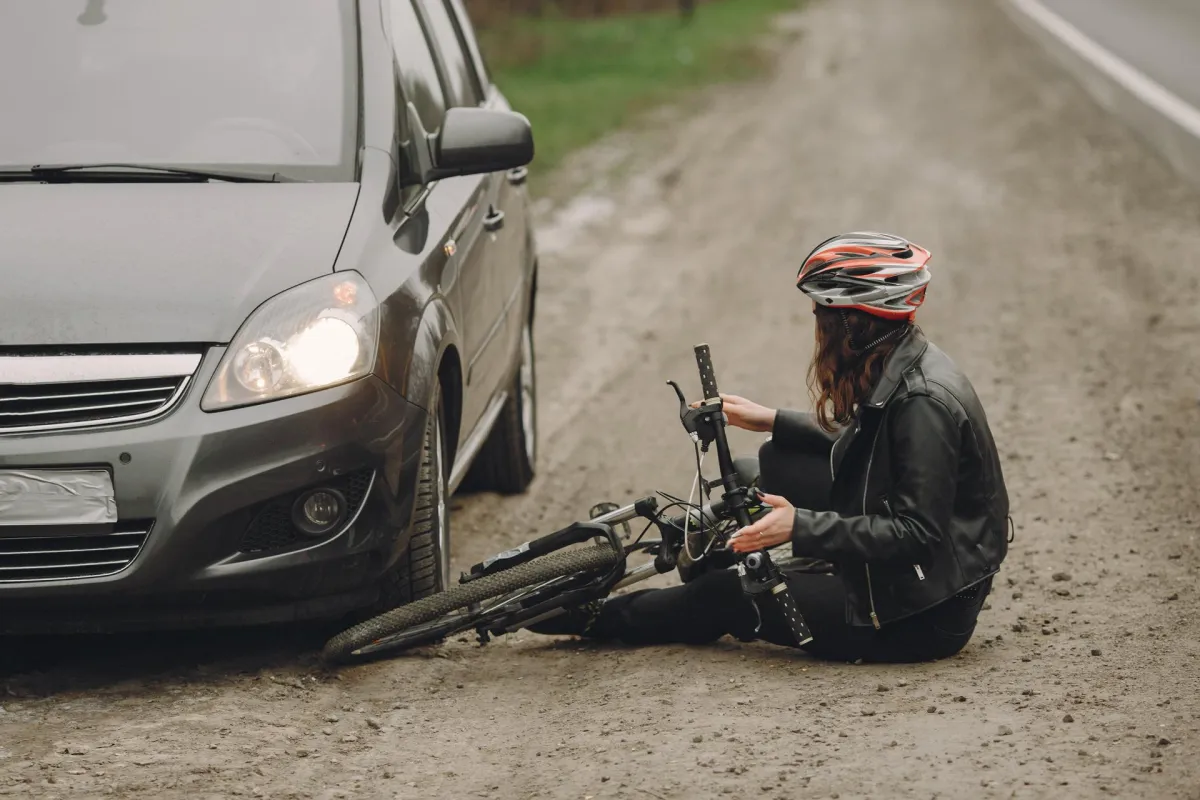BLOG

What to Do Immediately After a Hit-and-Run Accident in Illinois
Introduction
You’re driving, or maybe walking, and suddenly another vehicle slams into you—or your parked car—and then speeds away. That shock, that helplessness, is one of the worst feelings. In Illinois, hit-and-run accidents are all too common, and victims often feel powerless. But there are concrete steps you can take immediately afterward to protect your health, your rights, and your ability to pursue compensation later.
In this article, we’ll walk you through what you should (and should not) do in the minutes and hours after a hit-and-run in Illinois. We’ll also explain Illinois laws, insurance issues, how your attorney can help, and answer common questions victims ask. By following this guidance, you’ll be in a stronger position to recover damages—even if the fleeing driver is never found.
Understanding Hit-and-Run in Illinois
Before diving into the “do’s and don’ts,” it helps to understand how Illinois law defines hit-and-run and what obligations drivers have under state statutes.
What Is a Hit-and-Run?
Under Illinois law, a hit-and-run occurs when a driver involved in an accident causing injury, death, or property damage fails to stop, exchange required information, or render aid if necessary. Drivers are legally required to stop at the scene, provide their contact and insurance information, and assist if anyone is injured.
Failing to do so is not only unethical—it’s a crime.
Criminal Penalties
The severity of the offense depends on what happened:
When only property damage occurs, it’s usually a Class A misdemeanor, punishable by fines, license suspension, and up to one year in jail.
When injuries are involved, it becomes a Class 4 felony, which can mean significant fines and imprisonment.
When a hit-and-run results in death, it’s a Class 3 felony—a serious charge that can carry years of prison time.
Beyond the criminal penalties, the fleeing driver may also face civil liability if identified.
Reporting Requirements
Illinois law requires that crashes involving injury, death, or significant property damage be reported to law enforcement. Police officers must complete a crash report, and this document becomes a key piece of evidence for your insurance claim or lawsuit. Always request the report number at the scene.
What You Should Do Immediately After a Hit-and-Run
Here’s what to do step by step to protect your safety, preserve evidence, and strengthen your claim.
1. Ensure Safety and Seek Medical Attention
Your first priority is safety. Check yourself, passengers, and anyone nearby for injuries. Call 911 if anyone is hurt. Even if you feel fine, it’s smart to get checked by a doctor—some injuries, like concussions or internal trauma, don’t appear right away.
If your vehicle can move, pull it to a safe location off the road. Turn on your hazard lights and wait for help to arrive.
2. Call the Police
Always contact law enforcement immediately after a hit-and-run. Give officers as much detail as possible: the direction the other vehicle went, its color, make, model, or any part of the license plate you remember. Police reports are essential for insurance claims and for any later lawsuit.
3. Document the Scene
Evidence can disappear fast after a crash. Take a few minutes to gather what you can.
Photograph your vehicle damage, debris, skid marks, and surroundings.
Note the time, weather, and lighting conditions.
Write down what you recall about the fleeing car—its color, shape, damage, or distinguishing features.
Ask any witnesses for their names and contact details.
Look around for nearby cameras—traffic lights, businesses, or doorbell cameras may have caught the incident.
The more you record, the stronger your claim will be.
4. Do Not Chase the Driver
It can be tempting to chase the person who hit you, but it’s never worth it. Pursuing the driver can lead to more danger, further accidents, or even legal complications. Focus on collecting information and staying safe—let the police handle the pursuit.
5. Notify Your Insurance Company
As soon as possible, report the accident to your insurer. Provide them with the police report number, photos, and any witness information.
Illinois requires uninsured and underinsured motorist coverage on all auto policies, and it often applies to hit-and-run cases. This means you may still be able to recover compensation for injuries or damage even if the at-fault driver isn’t found.
6. Contact a Personal Injury Attorney
Hit-and-run claims can be complicated. An experienced personal injury lawyer in Chicago can help you:
Collect evidence like surveillance footage or crash data
Handle communication with your insurer
Determine if uninsured motorist coverage applies
File claims or lawsuits before the statute of limitations expires
Ensure that no legal deadlines are missed
Consulting an attorney quickly gives you the best chance of preserving evidence and protecting your rights.
7. Preserve Evidence
Once you’ve reported everything, it’s critical to keep all related documentation safe.
Store copies of medical records, police reports, and repair estimates
Save all photos and videos in a secure location
Keep receipts and bills related to medical care or property damage
Track lost income or other expenses from the accident
This documentation will support your case whether it’s resolved through insurance or in court.
Frequently Asked Questions
Q: Am I legally required to report a hit-and-run in Illinois?
Yes. Any crash that causes injury, death, or major property damage must be reported to law enforcement. Failure to report could affect both your legal rights and your insurance claim.
Q: How long do I have to file a claim?
In Illinois, the statute of limitations for personal injury is generally two years from the date of the accident. Missing this deadline usually means losing the right to recover compensation.
Q: What if the driver is never found?
You can still file a claim under your uninsured motorist coverage. Your attorney will help ensure your insurer honors your policy and compensates you for damages.
Q: Can I claim property damage only?
Yes. Even if you weren’t injured, you can file a property damage claim for repairs or vehicle replacement. Check your policy for deductible details.
Q: What if I left the scene to get medical help?
Leaving the scene for urgent medical care is acceptable as long as you promptly contact police afterward and cooperate with their investigation.
Conclusion
A hit-and-run accident is one of the most stressful experiences a driver can face. But even when the at-fault driver flees, you still have options. Acting quickly—by calling police, collecting evidence, notifying your insurance, and consulting a personal injury attorney—can make the difference between a denied claim and a successful recovery.
If you’ve been hurt in a hit-and-run in Chicago or anywhere in Illinois, don’t wait to seek legal advice. Every hour counts when it comes to preserving evidence and protecting your rights.
COMING SOON

The Law Offices of John A. Culver offers over 3 decades of legal experience defending and prosecuting civil actions on behalf of a variety of clients, including numerous jury trials.

